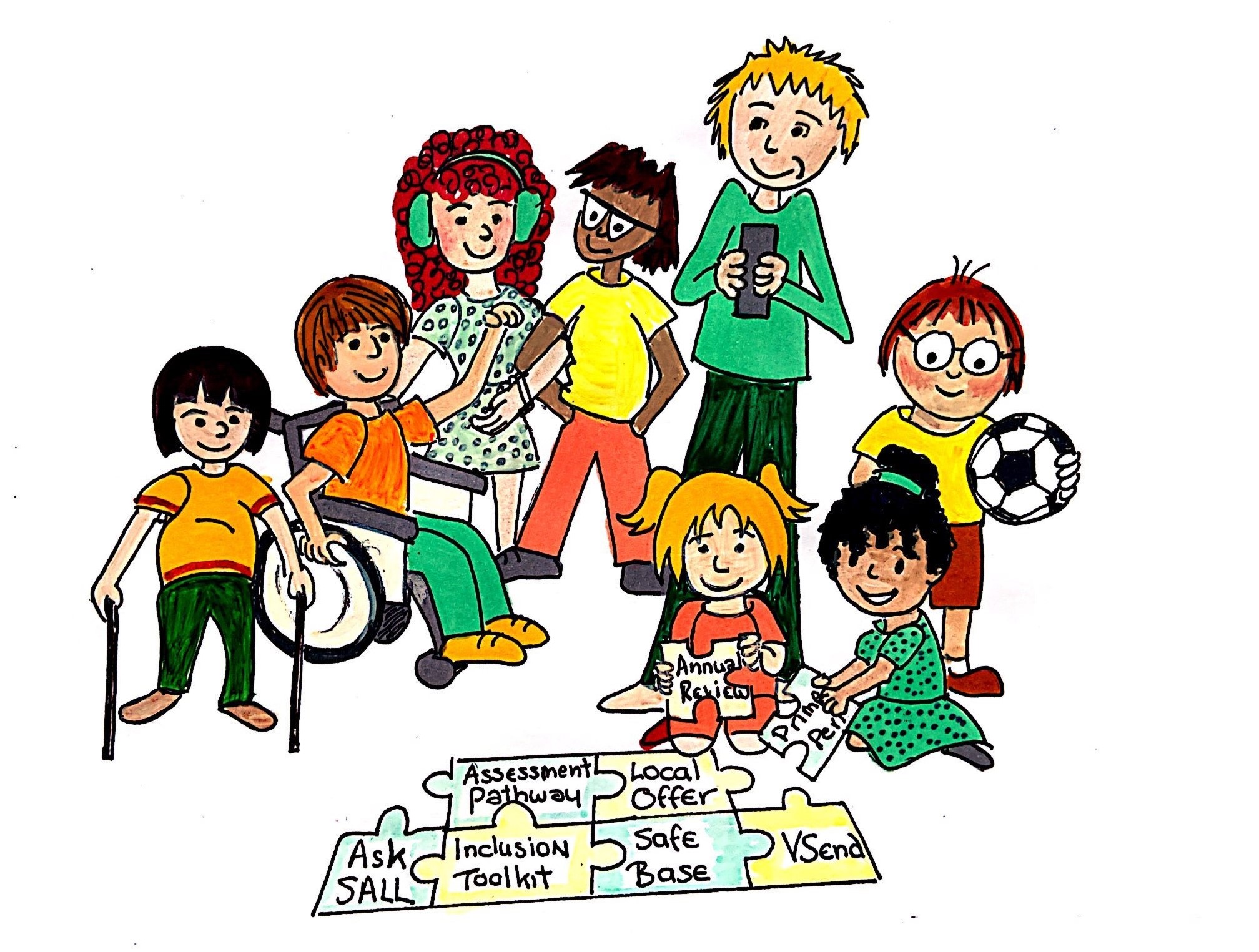Level 5-6 strategies to support specialist interventions
High quality teaching and targeted strategies, approaches and adaptations for pupils should be implemented and supplemented
0-5
In addition to the strategies and approaches described previously the child may:
- need intensive hearing speech and language rehabilitation following hearing aid fitting or cochlear implant surgery
- require a specialist TA for sign supported english and frequent reinforcement of key vocabulary and concepts
- need monitoring of social and emotional well-being and inclusion
- need group discussions to be carefully managed and paced in order to participate and benefit from adult led small group sessions
- benefit from assistive listening devices such as radio aids and will require a speedy response to any problems with this technology
- need personalised programmes of language development
- need access to quiet working space for small group work, checking of equipment and specialist assessment
- need additional adults to support the child individually, under the direction of the teacher or manager to provide additional focused opportunities within play to develop early speech, language, literacy, listening and social skills
- a monitoring system should be in place to assess child need, identify outcomes, implement support and monitor and evaluate progress, for example a one page profile
- require regular direct input, where appropriate. For example, provide additional focused opportunities within play to develop early speech, language, literacy and listening skills.
- early understanding of deafness in order to begin to realise what helps them and to begin to manage their hearing equipment when appropriate.
- specialist teams might include audiology departments, cochlear implant centres, qualified teacher for children and young people with a hearing impaired (QTHI), community paediatrician, Specialist Speech and Language Therapist, and educational psychologist
- planned reviews with the parent and child should take place
- further information on some of these services can be found on Lincolnshire's Local Offer.
5-16
In addition to the strategies and approaches described previously the pupil may:
- need intensive hearing speech and language rehabilitation following hearing aid fitting or cochlear implant surgery
- require a specialist TA for sign supported english and frequent reinforcement of key vocabulary and concepts in order to keep up with the demands of the classroom
- need monitoring of social and emotional well-being and inclusion
- needs an adult who is skilled in monitoring and managing the learning environments for deaf learners, can prompt subject and class teacher to make adjustments and ensure assistive technology is appropriate
- need group discussions to be carefully managed and paced in order to participate and benefit from teacher led small group sessions Benefit from assistive listening devices such as radio aids and will require a speedy response to any problems with this technology
- need access to quiet working space for small group, checking of equipment and specialist assessment
- need personalised programmes of work and language development
- need advice on good acoustic environment
- need access to additional specialist curriculum
- require regular direct input, where appropriate. For example, pre and post tutoring for curriculum, language programme
- personal understanding of deafness at all levels in order to come to terms and manage their hearing loss and equipment
- specialist teams might include audiology departments, cochlear implant centres, qualified teacher for children and young people with a hearing impaired (QTHI), community paediatrician, Specialist Speech and Language Therapist, and educational psychologist
- further information on some of these services can be found on Lincolnshire's Local Offer.


